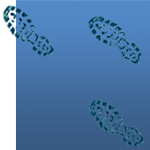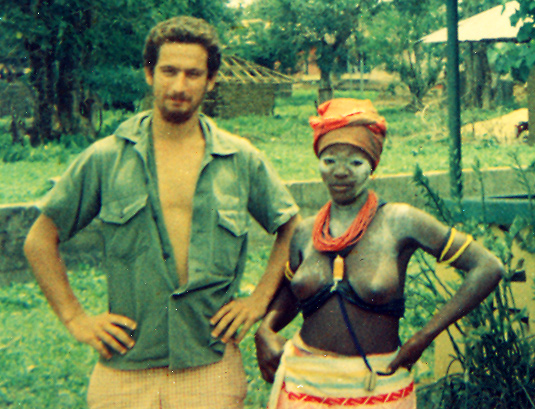| |










|

Outline
Note: What follows below is a
summary of what is covered in each chapter. Missing are the people I meet, who
are the living elements of each chapter. They cannot be summarized by sound
bites. We have to listen to what they say and see what they do. Each chapter
also comes with a map tracing my wanderings. |
|
Prologue (1,600
words)
I, Peter Shikli, take several trips
in unknowing preparation for my adventures in Africa, beginning with an escape
from Hungary during the 1956 Hungarian Revolution at the age of 6 and ending
with a 25,000-mile motorcycle ride from LA to Argentina and back. I do not
portray myself as a fearless adventurer, but rather a likeable but
self-centered adolescent who has yet to learn to love others more than himself.
The reader understands that this will be the coming-of-age theme, and that
there will be a test at the end of the journey. |
|
Chapter 1 (14,700
words)
The action begins immediately as I
cross the Straights of Gibraltar, only to be swindled in a dark Moroccan alley.
I then find my way to a beach commune of half-naked hippies dedicated to the
pursuit of pleasure. I meet Derek who has stolen a grocery van in England to
explore the Sahara, only to be joined in this adventure by two pampered London
girls with a lot of cash. At one point, Derek falls into alkaline quicksand
which burns him and almost sucks him to his death. Low on gas, water and hope,
the travelers come upon a walled ghost town that moving sand dunes had only
recently strangled and killed. Once in the Spanish Sahara, they fall in with a
patrol of Foreign Legionnaires who escort them to Tindouf, Algeria through
territory controlled by the Polisario Guerrillas. |
|
Chapter 2 (11,600
words)
My next stop is an isolated stone
fort in Mauritania garrisoned by soldiers stoned senseless on a local variant
of hashish, and I accidentally stroll out onto their mine field. In a man-made
oasis around a bustling iron mine, I meet an expatriate trading his time for
money. In Mauritania's capital city, I encounter a missionary working
selflessly to help his fellow man, and we muse whether the modern philosophy of
life is simply to arrange the correct voltages on as many nerve endings as
possible. My voyage enters black Africa in Senegal where I witness a drowning
and ponder how the value of human life has dropped. |
|
Chapter 3 (16,100
words)
In the small country of Gambia, I
find work repairing kerosene refrigerators, laboring aboard an old wooden
sailboat that collects peanuts along the Gambia River, and pimping for a
Canadian prostitute traveling to Upper Volta. After a glimpse into the life of
a Peace Corps volunteer, I purchase a bicycle to travel the Ivory Coast,
stopping at a village to learn the lost art of story telling. In Liberia, I
learn from the great great grandson of a freed slave from Georgia why the
repatriated Africans had not brought democracy from America. I then survive a
bout of plague in Sierra Leone, and decide to recuperate in a village where I
get a job working for a graduate of Moscow's international student
indoctrination program, a man who reveals why he switched sides to become a
capitalist. |
|
Chapter 4 (15,200
words)
On a jungle hunt, I and my comrades
are attacked by swarms of ferocious jungle ants. In Ghana, I land in a remote
village where I am invited to join the Council of Elders, have an affair with
the chief's daughter, and am offered a small plantation to settle down. Besides
learning how such a remote village operates, I discover how differently the
French and British left their colonies.
On a crossing of Lake Volta, I come
across villages where most of the inhabitants have gone blind due to worms
crawling in their eyes. Crossing Nigeria two years after the Biafran Civil War,
I learn first-hand the simple reason for so much carnage. In the Cameroons, I
meet a missionary locked in a battle with the priests of juju and the
mysterious Water Society. |
|
Chapter 5 (12,900
words)
In Gabon, I encounter a troop of
angry apes just after a hunter kills one of them. After a conversation with a
street-urchin-turned-philosopher about the pompous dictator of the Central
African Empire, I cross into Zaire to learn there are no roads further south.
On a raft for a thousand miles, I make my way down the Congo River, and arrive
in Angola in time to throw in with the departing colonialist soldiers of
Portugal. The action continues as I am caught in a shootout among gamblers not
far from the Kalahari Desert.
In a moment of reflection, I
consider how much the road has taught me, yet I conclude that learning to be
wise can't be the goal of life, that learning to love is. I surprise myself by
the depth of feeling I can arouse in myself when I consciously love not just a
person but all the people represented by that person. Contrasting this to what
I see of apartheid in South Africa, I add to my coming of age an understanding
of the importance of love as a life goal. |
|
Chapter 6 (11,200
words)
My next job, shoveling coal on a
locomotive, gives me an uncommon view of South Africa and the Kingdom of
Lesotho, a land of black cowboys. In Mozambique, I am condemned to a firing
squad because of a misunderstanding over the Portuguese word for missionary and
mercenary. Once safely in Rhodesia, I relax in several game parks until I
incite an elephant charge with a few badly chosen notes on my kazoo.
After learning that Diane, my true
love back home, intends to come traveling with me, I race up to East Africa
where I run into some spear-wielding Masai tribesmen and hear a local
businessman share insights into these ancient nomads. With Tanzania and Kenya
providing different examples of the birth of nations, I reflect on what I have
understood as a young man of African politics. Finally, the reader sees a
picture of a city park in Nairobi which has gained a reputation among wanderers
as the meeting place and starting point for expeditions and
adventures. |
|
Chapter 7 (11,900
words)
Marc, a French Canadian who left
his law practice to be a vagabond, joins me on a journey across Ethiopia at a
time the ancient kingdom was sinking into civil unrest. A humorous rock fight
with a troop of baboons blends into a touching encounter with lepers and other
pilgrims hobbling to a religious shrine in hopes of a cure. The adventure
continues aboard an Arab dhow as Marc and I cross the Red Sea to Yemen where we
encounter Arabs still living in the times of Mohammed and Sinbad. Passing
through Saudi Arabia, the intrepid pair find their way back to Sudan in Africa
and spend three days strapped to the roof of a train on the way to Egypt. Marc
solves the mystery of the copper tubes in all the toilet bowls. |
|
Chapter 8 (11,100
words)
Once in Athens, I meet Diane, my
sweetheart from LA, and we begin to tour Europe together. Though I impress
Diane with my traveling skills, I disregard her needs in order to satisfy my
own, coercing her to make love when she is still in love with a man back in LA.
In days to come, I show myself an immature adolescent, trying to act like a
man, but often falling short. When a latent African disease catches up with me,
Diane shows her ability to love me as a true friend, caring for me and taking
me to Budapest where I am quarantined. I then learn to begin to give of myself,
mostly as a tour guide with a sense of humor. |
|
Chapter 9 (11,800
words)
Diane and I travel on together,
crossing from Italy to Switzerland on foot, lost in a fog on a glacier next to
the Matterhorn. We meet Jennifer, and the Three Musketeers travel Europe until
a surprising misfortune befalls the happy crowd, misfortune that I cause.
Stepping up to my responsibilities is the moral dilemma, the coming-of-age fork
in the road. I decide to run away. But memories of the wise and lovable
Africans whom I met bring me back, and I show some integrity.
After Diane leaves for home, I
decide to follow her. Down to a few dollars, I find work aboard a freighter to
Florida and hitchhike back to LA, offering a few insights about how it feels to
return home after so many years. In the company of two escapees from a lunatic
asylum, I arrive Halloween night, buy a mask, and surprise my
parents. |
|
Epilog (700
words)
I wrap up the adventure by
summarizing how Diane did become my lady, and how the lessons of Africa stayed
with me even in the fast lanes of LA. I end with my definition of an adventure,
doing something significant with one's life, and how that can be to raise a
family in suburbia just as much as to trek about in Africa. |
|